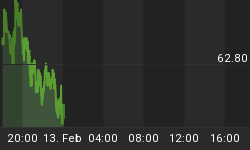Buried on page C3 of today's Wall Street Journal (WSJ) is a story "FDIC Issues New Deposit Rules for Big Banks". While little information is available, what I can find makes me a little nervous. So I am not skewing what was reported, here is a portion of the exact text from the Wall Street Journal article:
WASHINGTON -- The country's largest banks, particularly those more likely to fail, will have to make changes to the way they treat deposits, as federal banking regulators prepare for more trouble in the struggling banking industry. The new rules for large banks will require them to standardize the information they provide to the FDIC on deposit accounts, and to put in systems to automatically post possible holds on very large deposit accounts. Regulators have predicted that more banks will fail, and the FDIC's new rules seek to address those concerns.
The vague "put in systems to automatically post possible holds on very large deposit accounts," is what I am uncomfortable with. Does this mean to prevent a bank run; the FDIC can prevent some large depositors from accessing or transferring their funds?
On www.communityinvestmentnetwork.org, I found these remarks (excerpts below) from FDIC Chairman Sheila Bair to the Exchequer Club of Washington D.C. on June 18, 2008:
Yesterday, the FDIC's Board adopted a final rule to modernize the claims process. The rule reflects the comments we've received on several proposed rulemakings on the claims process issued over the past few years. It also reflects extensive talks we held with industry representatives.
The rule requires that large banks have the ability, in the event of failure, to do several things. They must be able to place holds on a fraction of large deposit accounts, produce depositor data for the FDIC in a standard format, and automatically debit uninsured deposit accounts so that they will share losses with the FDIC.
This approach should give most depositors uninterrupted access to virtually all their funds, thus diminishing the likelihood that liquidity problems for individuals and businesses will lead to disruption in the financial system. To complement the industry's efforts, we have been extensively modernizing our computer systems and expanding our ability to categorize large numbers of claims in a very short time -- one to two days.
According to a Bloomberg article posted today:
The change will help pay off insured deposits as soon as possible and help "maintain public confidence in the banking industry," the regulator said. It will also `"mitigate the spillover effects of a failure, such as risks to the payments system, problems stemming from depositor illiquidity and a substantial reduction in credit availability."
















